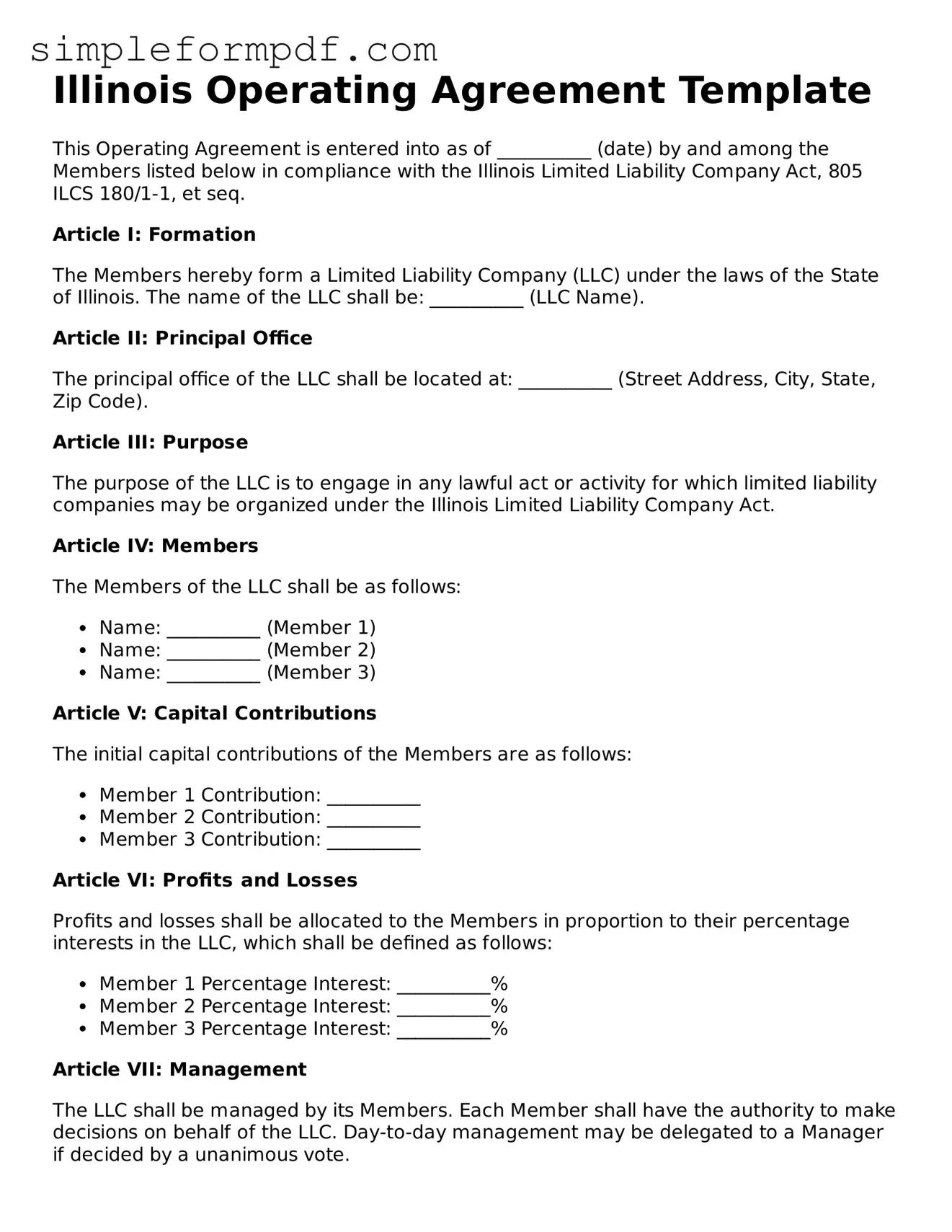Illinois Operating Agreement Template
This Operating Agreement is entered into as of __________ (date) by and among the Members listed below in compliance with the Illinois Limited Liability Company Act, 805 ILCS 180/1-1, et seq.
Article I: Formation
The Members hereby form a Limited Liability Company (LLC) under the laws of the State of Illinois. The name of the LLC shall be: __________ (LLC Name).
Article II: Principal Office
The principal office of the LLC shall be located at: __________ (Street Address, City, State, Zip Code).
Article III: Purpose
The purpose of the LLC is to engage in any lawful act or activity for which limited liability companies may be organized under the Illinois Limited Liability Company Act.
Article IV: Members
The Members of the LLC shall be as follows:
- Name: __________ (Member 1)
- Name: __________ (Member 2)
- Name: __________ (Member 3)
Article V: Capital Contributions
The initial capital contributions of the Members are as follows:
- Member 1 Contribution: __________
- Member 2 Contribution: __________
- Member 3 Contribution: __________
Article VI: Profits and Losses
Profits and losses shall be allocated to the Members in proportion to their percentage interests in the LLC, which shall be defined as follows:
- Member 1 Percentage Interest: __________%
- Member 2 Percentage Interest: __________%
- Member 3 Percentage Interest: __________%
Article VII: Management
The LLC shall be managed by its Members. Each Member shall have the authority to make decisions on behalf of the LLC. Day-to-day management may be delegated to a Manager if decided by a unanimous vote.
Article VIII: Indemnification
The LLC shall indemnify any Member or Manager against any losses or expenses incurred in the course of the LLC's business, provided they acted in good faith and in a manner reasonably believed to be in the best interests of the LLC.
Article IX: Amendments
This Operating Agreement may be amended only by a written agreement signed by all Members of the LLC.
Article X: Miscellaneous
This Agreement constitutes the entire understanding of the Members with respect to the subject matter herein and supersedes all prior agreements. If any provision of this Agreement is found to be unenforceable, the remaining provisions shall remain in full effect.
IN WITNESS WHEREOF, the Members have executed this Operating Agreement on the date first above written.
Signatures:
- __________________________ (Member 1)
- __________________________ (Member 2)
- __________________________ (Member 3)

